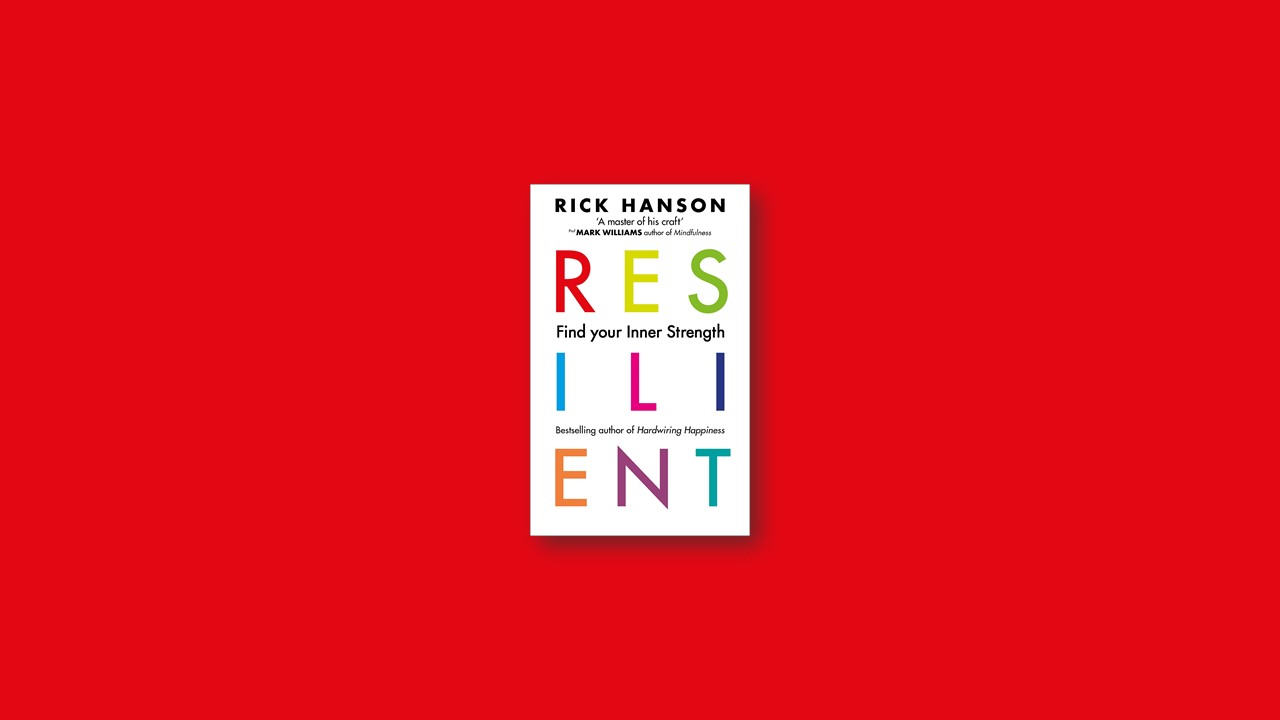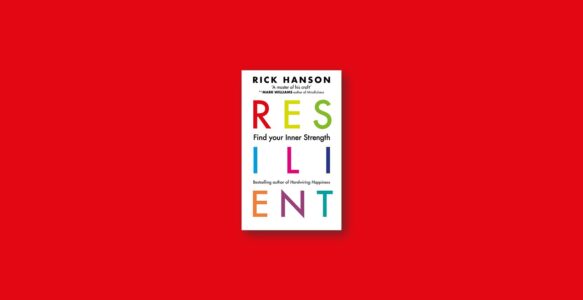These days it’s hard to count on the world outside. So it’s vital to grow strengths inside like grit, gratitude, and compassion—the key to resilience, and to lasting well-being in a changing world.
True resilience is much more than enduring terrible conditions. We need resilience every day to raise a family, work at a job, cope with stress, deal with health problems, navigate issues with others, heal from old pain, and simply keep on going.
With his trademark blend of neuroscience, mindfulness, and positive psychology, New York Times bestselling author Dr. Rick Hanson shows you how to develop twelve vital inner strengths hardwired into your own nervous system. Then no matter what life throws at you, you’ll be able to feel less stressed, pursue opportunities with confidence, and stay calm and centered in the face of adversity.
#1 Compassion
Compassion involves warmhearted concern for suffering and the desire to relieve it if you can. Compassion can be given both to others and to yourself.
Getting on your own side and bringing caring to your pain will make you more resilient, confident, and capable. Being good to yourself is good for others, too. Accepting things as they are—including yourself—helps you deal with them more effectively, and with less resistance and stress.
Enjoyable moments enrich each day. They also lower stress, connect you with others, and increase your learning—the lasting benefit—from the experiences you’re having.
#2 Mindfulness
We have three basic needs—safety, satisfaction, and connection—that we manage by avoiding harms, approaching rewards, and attaching to others. These needs and the ways we meet them are loosely related, respectively, to the reptilian brain stem, mammalian subcortex, and primate/human neocortex.
Well-being comes from meeting our needs, not denying them. When we experience that our needs are sufficiently met, the body and mind enter the “green zone” Responsive mode, and there is a sense of peace, contentment, and love. When needs feel unmet, we’re disturbed into the fight-flight-freeze “red zone” Reactive mode, and there is a sense of fear, frustration, and hurt.
#3 Learning
We acquire mental resources through learning. This happens in two stages: activation and installation. First, there must be an experience of the resource or related factors, and second, that experience must be converted into a lasting change of neural structure and function.
Without installation, there is no learning, healing, or development. Getting better at installation will steepen your growth curve, and these skills can be applied to anything you would like to develop inside yourself. This is not about positive thinking. It is about realistic thinking, seeing the whole mosaic of reality with its problems and pains as well as its many, many reassuring, pleasurable, and useful parts.
#4 Grit
Just a few experiences of being trapped, powerless, and defeated can lead to “learned helplessness,” which undermines coping and ambition, and is a risk factor for depression. So it’s important to look for what you can do, if only inside your mind, especially in challenging situations or relationships
Don’t put off sensible actions for your physical health. It’s always easy to start tomorrow. Instead, ask yourself, “What can I do today?”
#5 Gratitude
We seek to feel good in the future, but this is often stressful in the present. Poignantly, the pursuit of happiness can push it out of reach. With gratitude, we feel good already.
Giving thanks for what is beneficial does not prevent us from seeing what is harmful. In fact, the ways that thankfulness supports physical and mental health make us more resilient and more able to deal with challenges.
However due to the negativity bias, we notice when we fail to reach a goal while missing the fact that meanwhile we’re succeeding at hundreds of other goals. Look for opportunities to feel successful many times each day. Take in these experiences and use them to compensate for and heal feelings of failure or inadequacy.
#6 Confidence
Humans evolved to be dependent upon each other. When others are dependably helpful and caring, especially when we are young, we develop a sense of security and internal stability. But if others are distant or rejecting, we feel insecure and become less resilient.
No matter what has happened to you in the past, you can become more secure inside yourself. To do this, look for opportunities to feel cared about and take these experiences into yourself; develop a “coherent narrative” about your childhood; and be dependably empathic and caring toward others.
#7 Calm
Anger puts a lot of wear and tear on your body and mind, and it feeds conflicts with others. You can be powerful and assertive without being angry. Anger comes in two stages: the priming and the trigger. Try to act early to reduce the priming and respond to the trigger in proportion to it. Be careful about self-righteousness and faultfinding, and slow down interactions to prevent an “amygdala hijack”.
#8 Motivation
The brain has a fundamental motivational circuit based on dopamine activity. There are natural variations in the quantity of dopamine receptors that individuals have. People with fewer receptors tend to need more rewards to stay motivated.
Train this circuit by increasing the association between rewards and whatever you’d like to motivate yourself toward. Increase the amount of rewards, your attention on them, and your sensitivity to them. People often think they need to be hard on themselves to stay motivated, but the opposite is generally true. Use guidance rather than criticism to stay on your course.
#9 Intimacy
Empathy is necessary for intimacy. In the brain, different neural networks help us to tune into the thoughts, emotions, and actions of others. You can develop more empathy inside yourself, and you can tap more of that empathy when you interact with others.
Focusing on the faults of others creates deadlocks and resentment. It’s better to practice unilateral virtue: focusing on your own responsibilities and personal code of conduct no matter what others do. This brings the “bliss of blamelessness,” reduces conflicts, and increases the odds that others will treat you well.
#10 Courage
Open, authentic communication is fundamental to any significant relationship. But it’s also risky. To make it safe for yourself, recognize any real dangers, talk about talking, and separate solving problems from sharing experiences.
Speaking wisely means saying things that are well intended, true, beneficial, timely, not harsh, and, if possible, wanted. To assert yourself skillfully with someone, establish the facts and know your values. Focus on the results you want, consolidate your gains, and emphasize what will happen from now on. Make requests, not demands, and establish clear agreements.
#11 Aspiration
In love, work, and play, find the sweet spot at the intersection of three circles: what you enjoy, what you’re talented at, and what you care about. To aim high while being at peace with the results, have a growth mindset, know that it’s all right to fail, and don’t take what happens too personally.
The days may be long, but the years are short. Use the time that you have. Offer what you can, and know that after that it’s out of your hands.
#12 Generosity
Humans are naturally altruistic. Most generosity does not involve money. Appreciating yourself as a giver helps you keep giving. To give compassion without being overwhelmed by the suffering of others, we need equanimity, which can be cultivated by seeing suffering in its larger context, taking action as best you can, and recognizing what you have already done
To give a full pardon, think about the person who wronged you as a whole human being with many parts and deep down a good heart. Also have compassion, recognize remorse, and see whatever happened as an eddy in a vast river of causes.
Finally To give yourself a full pardon, take responsibility for whatever you did, feel appropriate remorse, make amends, ask for forgiveness, and actively forgive yourself.


